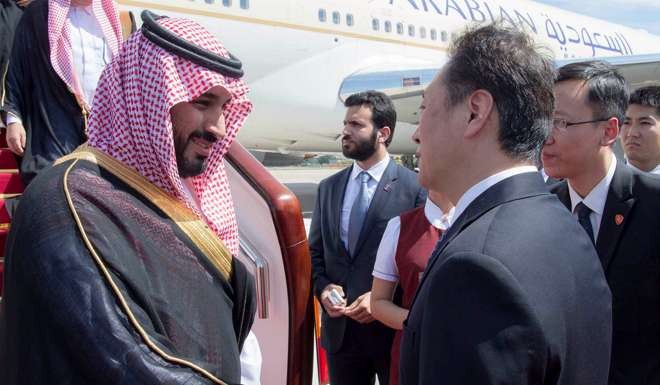
Update | Obama in diplomatic jam as US Congress sends him bill allowing lawsuits against Saudis for 9/11 attack
Diplomatic nightmare looms for US leader as proposed bill violates rules to protect foreign government from lawsuits
The unopposed US House of Representatives vote Friday to allow families of September 11 victims to sue Saudi Arabia begins a diplomatic nightmare for President Barack Obama.
The legislation is sure to antagonise a key US ally in the Middle East which already has tense relations with the administration. While Obama is likely to veto the bill, the House’s passage by voice vote raises the possibility Congress could override him, for the first time in his presidency, and make the measure law. The bill passed the Senate by a voice vote in May.
“The Saudis will see this as a hostile act,” said Dennis Ross, Obama’s former Middle East policy coordinator. “You’re bound to see the Obama administration do everything they can to sustain a veto.”
The bill would carve out an exception to sovereign immunity -- the legal doctrine which protects foreign governments from lawsuits -- if a plaintiff claims to have suffered injury in the US from state-sponsored terrorism.

Fifteen of the 19 hijackers who perpetrated the September 11 attacks were Saudi citizens. Long-classified portions of a congressional inquiry into the attacks that were released in July found that the hijackers may have had assistance from Saudis connected to their government. The Saudi government has denied culpability.
Saudi officials have said enactment of the law could lead them to sell off the kingdom’s US Treasury debt and other American assets, which totaled US$750 billion, the officials told US lawmakers and others in the government, according to the New York Times.
The Saudi government held $117 billion in US Treasury debt in March, according to Treasury figures obtained by Bloomberg. The kingdom may have additional holdings not included in the data on deposit with the New York Federal Reserve Bank, in entities in third countries, or through positions in derivatives.
Friday’s vote comes just ahead of the 15th anniversary of the September 11 attacks. Before the vote, Speaker Paul Ryan and other House members held a ceremony on the steps of the Capitol to mark the occasion.

Despite the legislation facing no opposition in Congress, the administration may be able to assemble enough support to avert an override of Obama’s veto, particularly if the White House can delay that vote until after the November election, said Ross, now a counselor at the Washington Institute for Near East Policy.
Passing the bill by voice vote means there is no record of individual lawmakers’ positions on the measure. Overriding a veto requires recorded votes in both chambers.
The administration has argued the legislation would set an international precedent weakening sovereign immunity that would be dangerous if other countries then seek to prosecute the US or American soldiers in their courts.
House Minority Leader Nancy Pelosi, a California Democrat said Thursday that she thought the bill “could be better,” but that it was difficult to make changes because the Senate passed the bill without any opposition. The measure, S. 2040, was co-sponsored in the Senate by the No. 2 Democrat, Chuck Schumer of New York, and the No. 2 Republican, John Cornyn of Texas.
“The administration has been trying to get us to change the language and send it back. But it’s a little late,” said Pelosi.

Schumer on Friday urged the administration to sign the current bill.
“There are always diplomatic considerations that get in the way of justice, but if a court proves the Saudis were complicit in 9/11, they should be held accountable,” Schumer said in a statement. “If they’ve done nothing wrong, they have nothing to worry about.”
A veto would pose some political risk for Obama because an override could be read as a sign of reduced influence with Congress as he enters a final fight over next year’s budget and a lame-duck session in which he hopes to pass his Trans-Pacific Partnership trade agreement.
Still, even if he failed to sustain the veto, Obama has served the longest period without a veto override of any president in more than a century. His 52 per cent Gallup approval rating for the week ended September 4, high relative to much of his presidency, also enhances his political influence.

The legislation reflects the diminished influence of a Saudi royal family that once enjoyed close personal ties with both of the Bush White Houses.
The US fracking boom in oil production has reduced dependence on the kingdom for energy, and thus its sway in Washington.
“It’s symptomatic of the fact that there’s just no support outside of the executive branch for a strong relationship with Saudi Arabia,” said Gregory Gause, a professor of international affairs at Texas A&M University.
The strategic relationship between Saudi Arabia and the US isn’t likely to be threatened regardless of the outcome because the countries share key common interests in maintaining security in the Persian Gulf and countering terrorism, said Thomas Lippman, a Saudi analyst at the Middle East Institute in Washington. Importantly, they also share a regional adversary in Iran.

Even so, the Saudis are trying to reduce their dependence on the US alliance, including by purchasing weapons from Russia and establishing a close energy relationship with China, Lippman said. Should it become law, the US legislation will be one more irritant in a relationship that has grown increasingly prickly.
The kingdom’s leaders were unnerved early in the Obama administration by the quick US abandonment of Egyptian President Hosni Mubarak following street protests against the long-time US ally.
The Saudis also were upset that Obama backed away from his threatened air strikes against Syrian President Bashar Assad, an ally of Iran. Obama’s nuclear deal with Iran further antagonised the Saudi regime.
The administration has pledged arms sales to the Saudis and their Sunni neighbors who were alarmed by the nuclear agreement.

But on Thursday, a bipartisan group of four senators introduced a joint resolution of disapproval seeking to block the US sale of US$1.15 billion of Abrams tanks and other military equipment to Saudi Arabia over the country’s intervention and airstrikes in Yemen.
Obama has shown impatience with the Saudis as far back as his 2002 speech against the Iraq War during his US Senate campaign, referring to the kingdom as “so-called allies.” In an article published in the Atlantic Magazine earlier this year, Obama complained about Arab allies that urge the US to act but won’t “put any skin in the game,” calling them “free riders.”
The Atlantic also recounted a conversation between Obama and Australian Prime Minister Malcolm Turnbull in which the Australian asked if the Saudis were friends. The US president’s response: “It’s complicated.”

